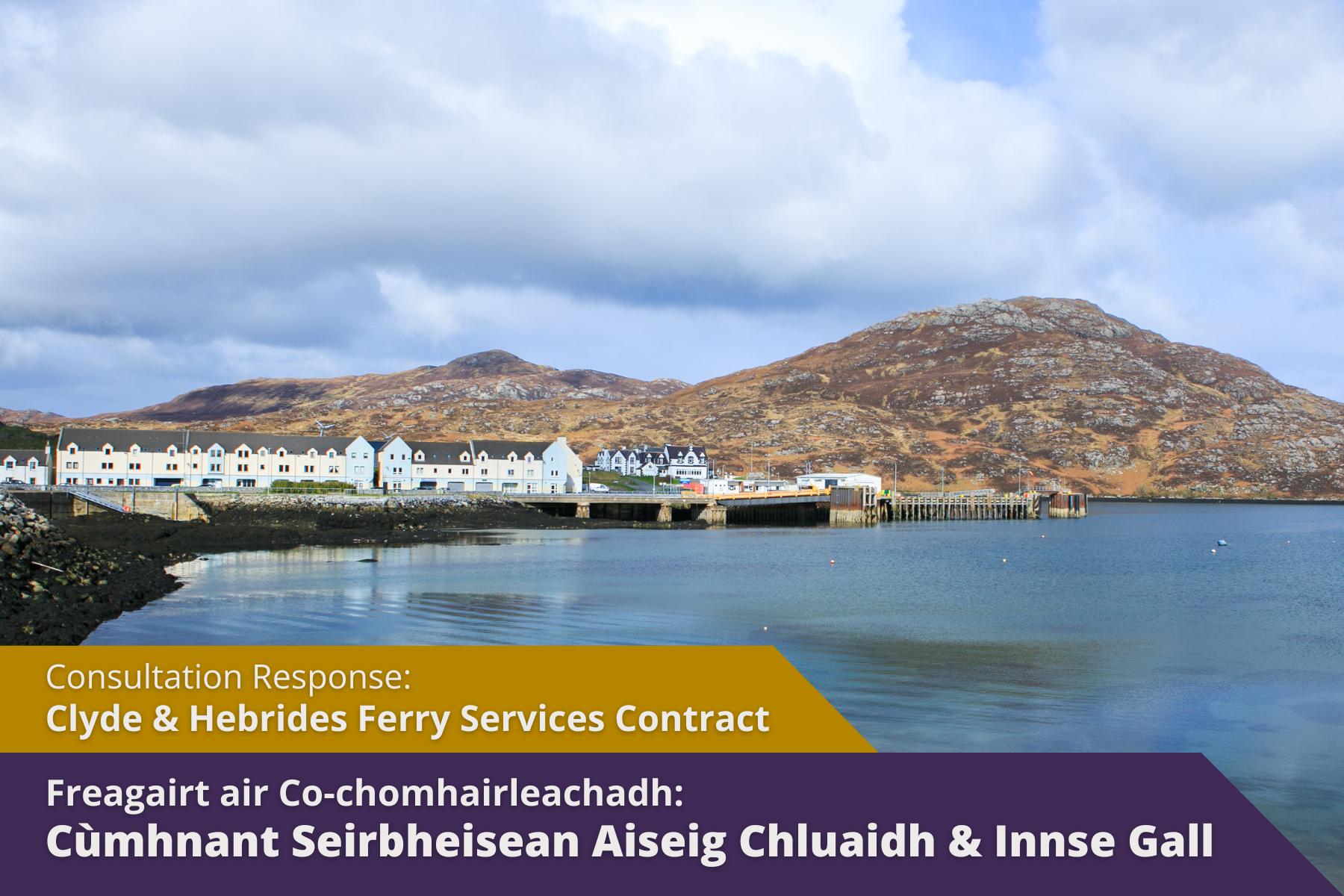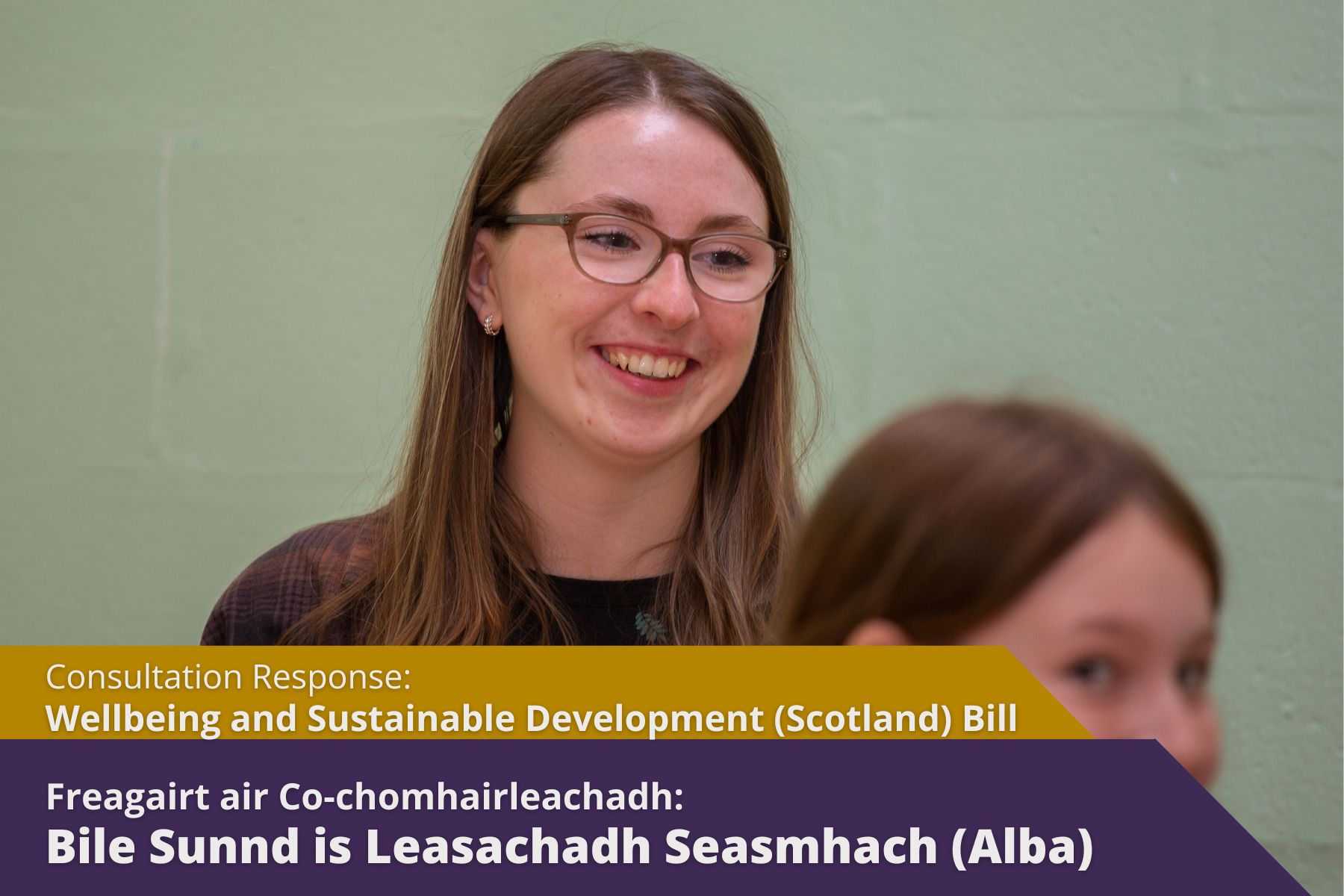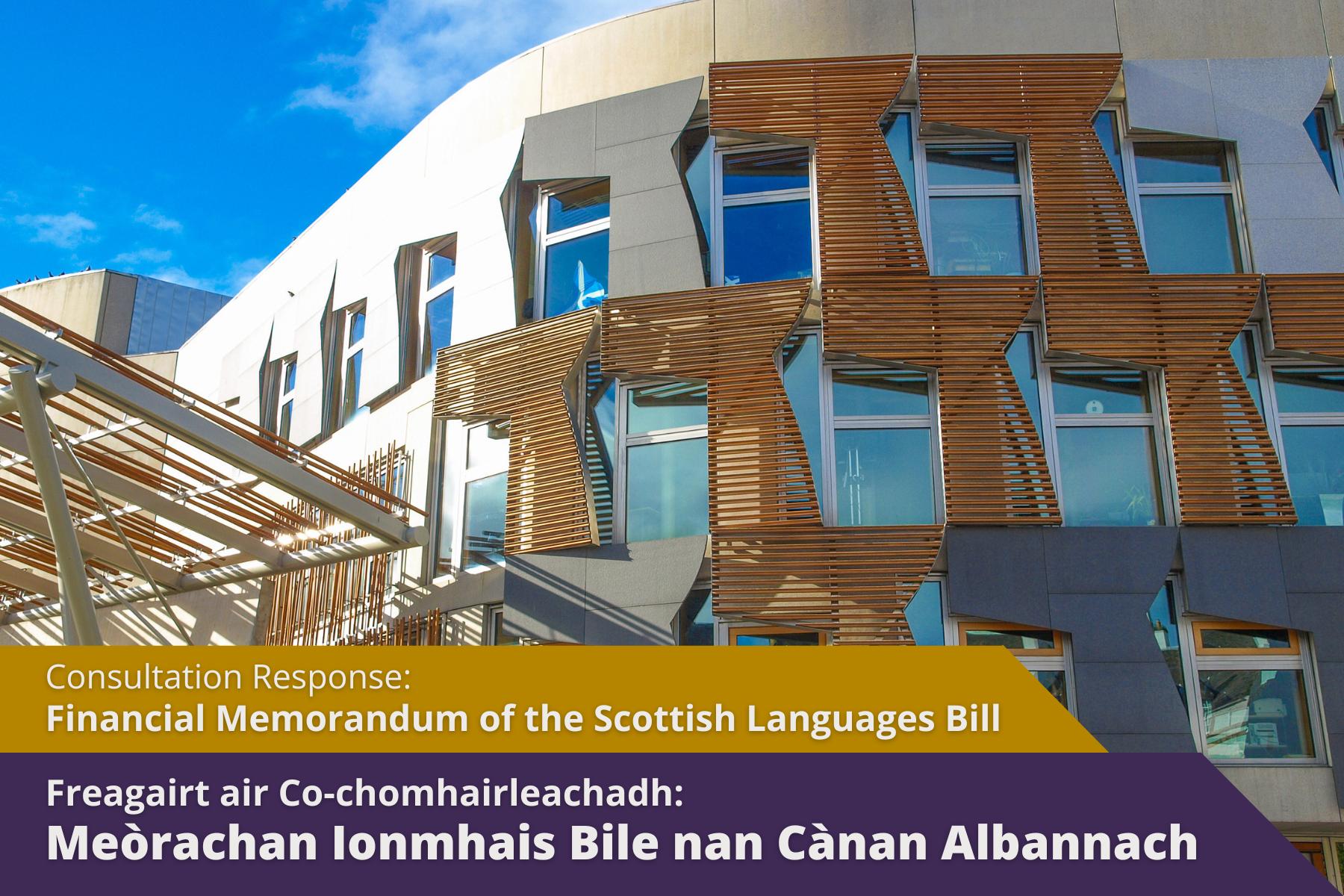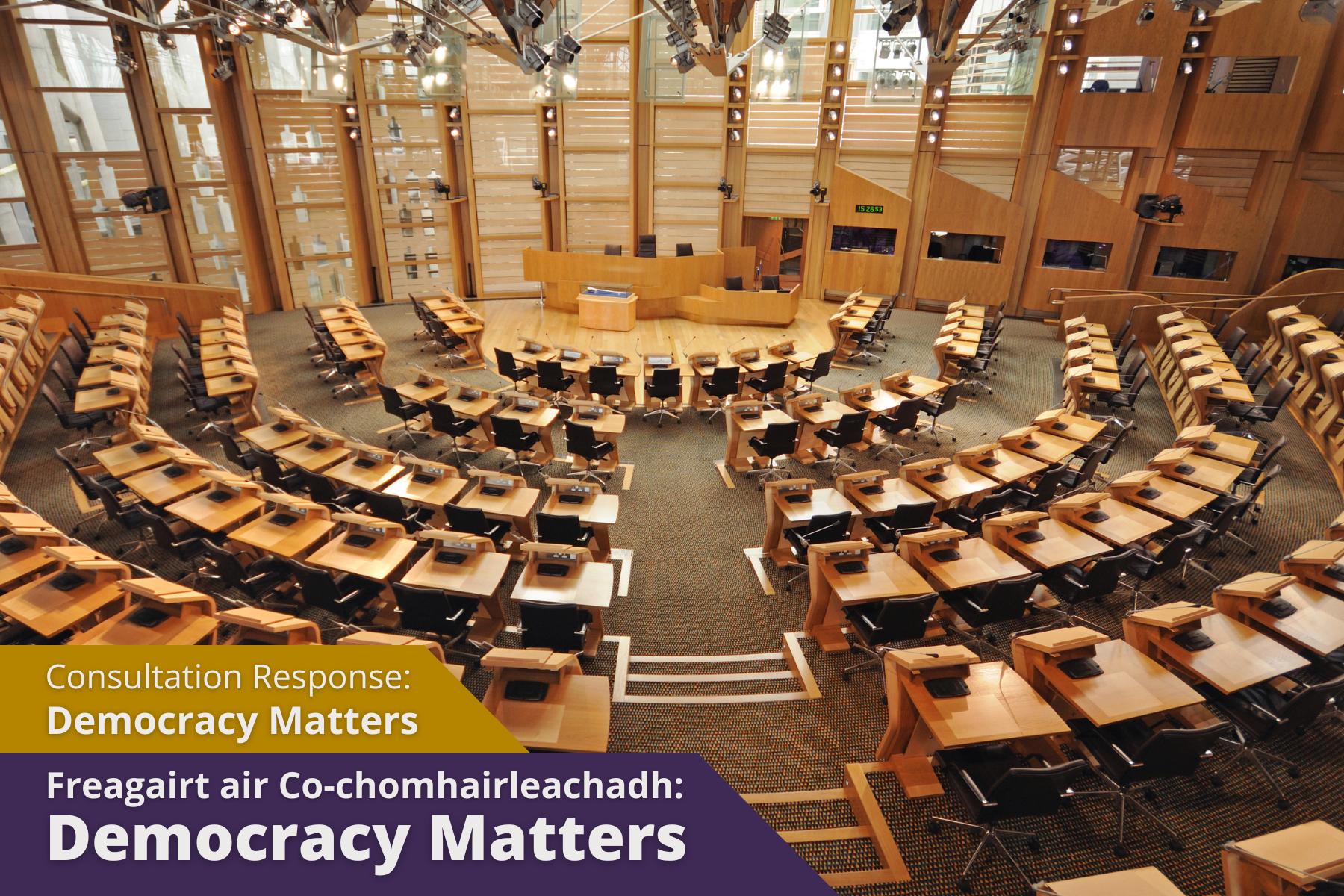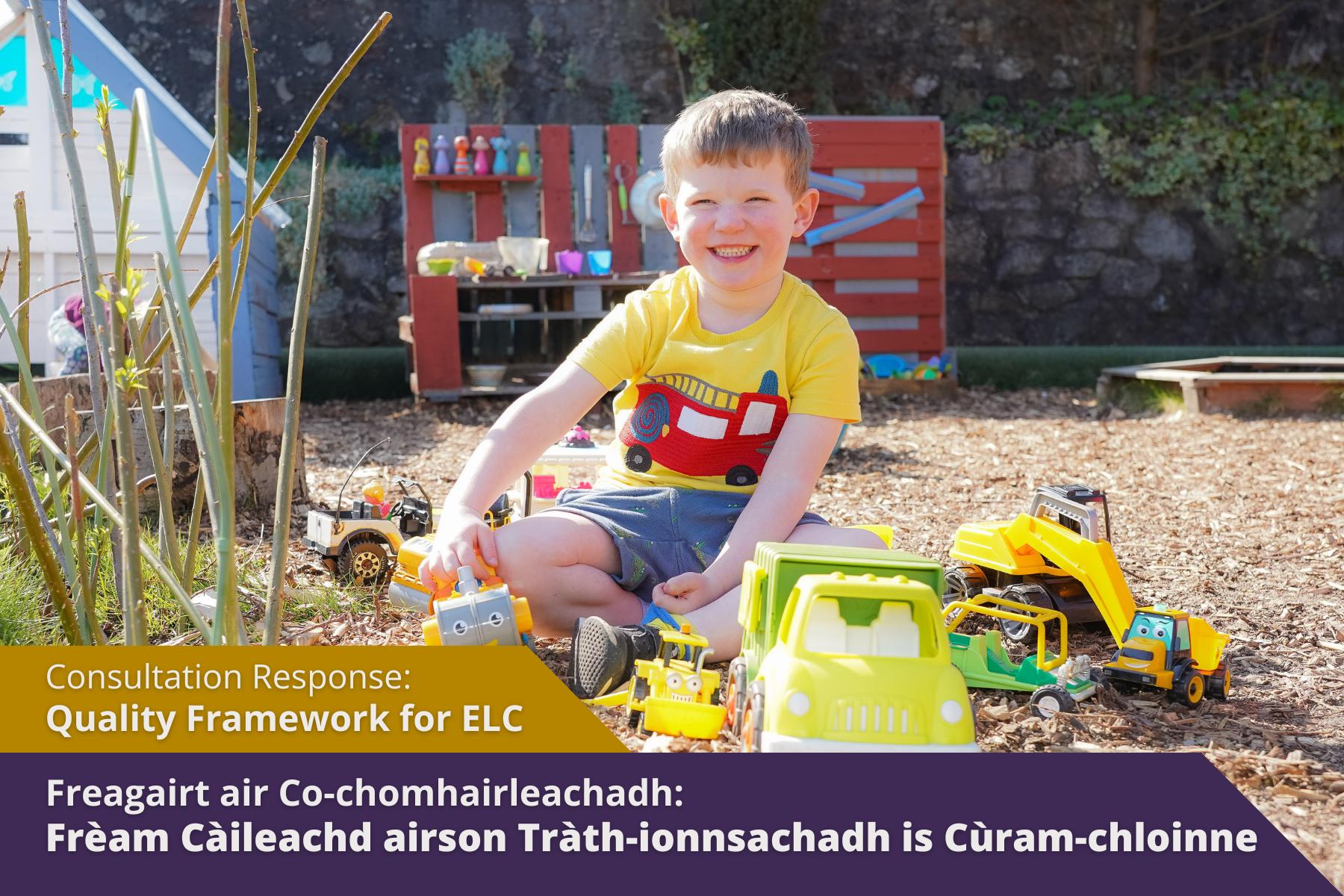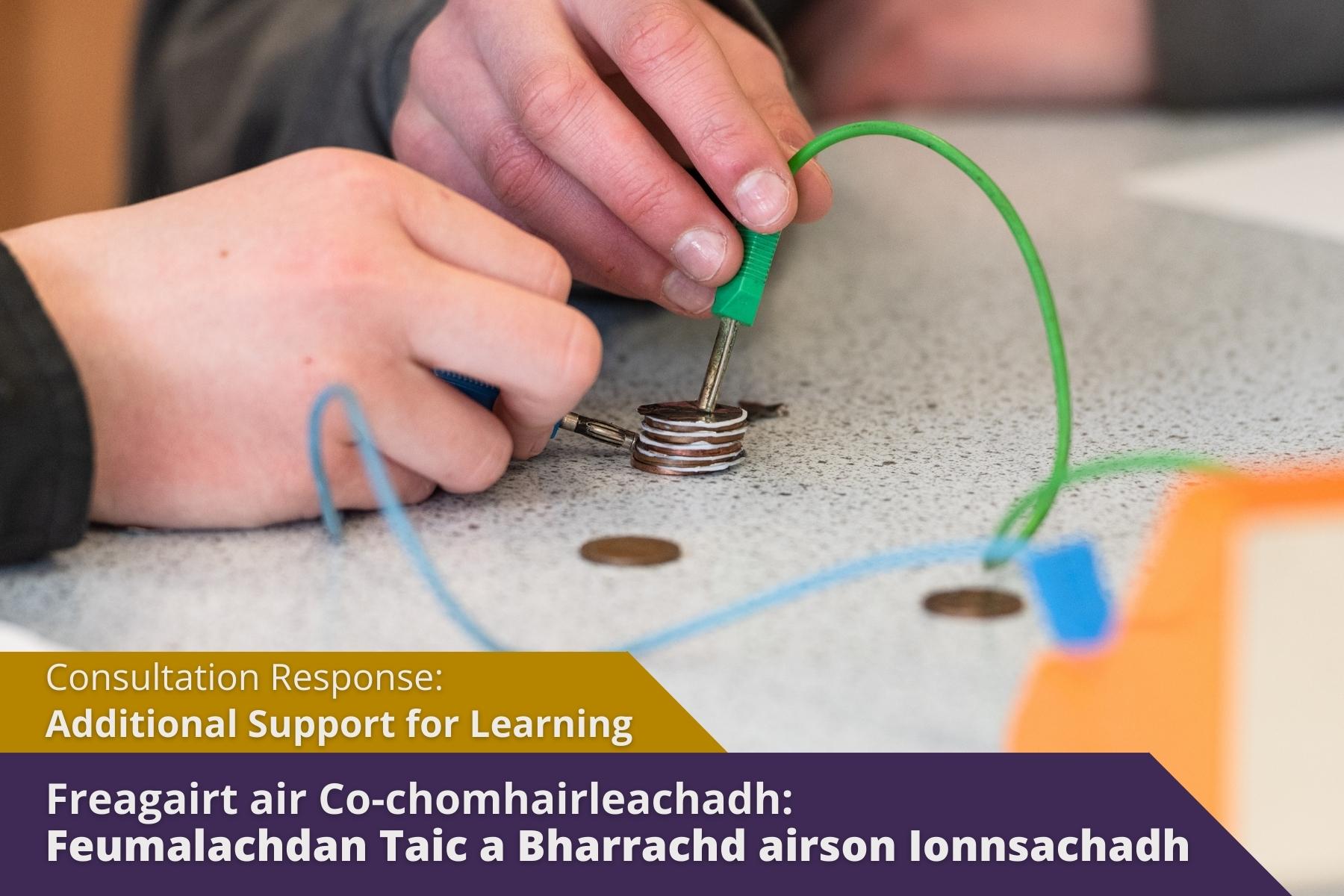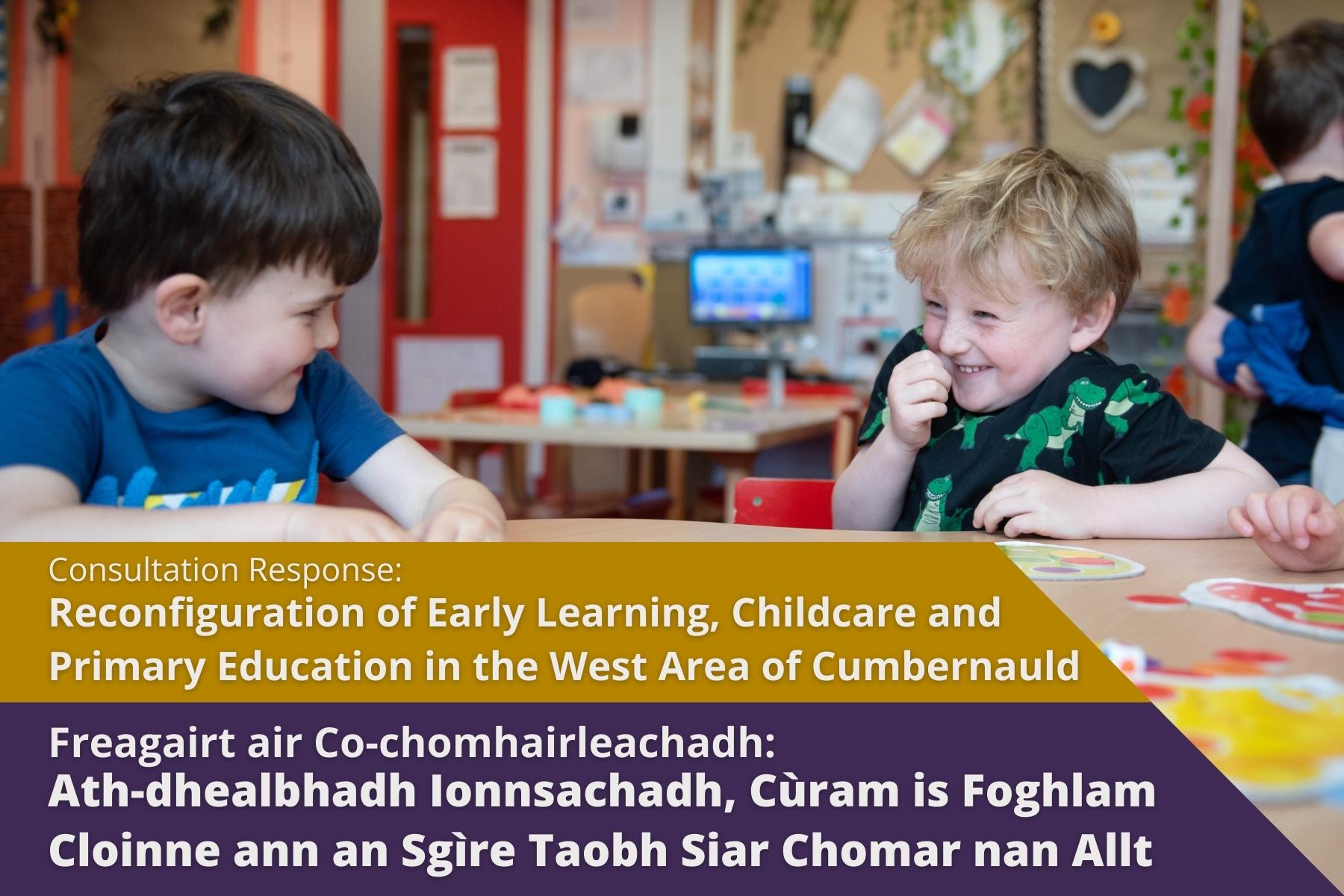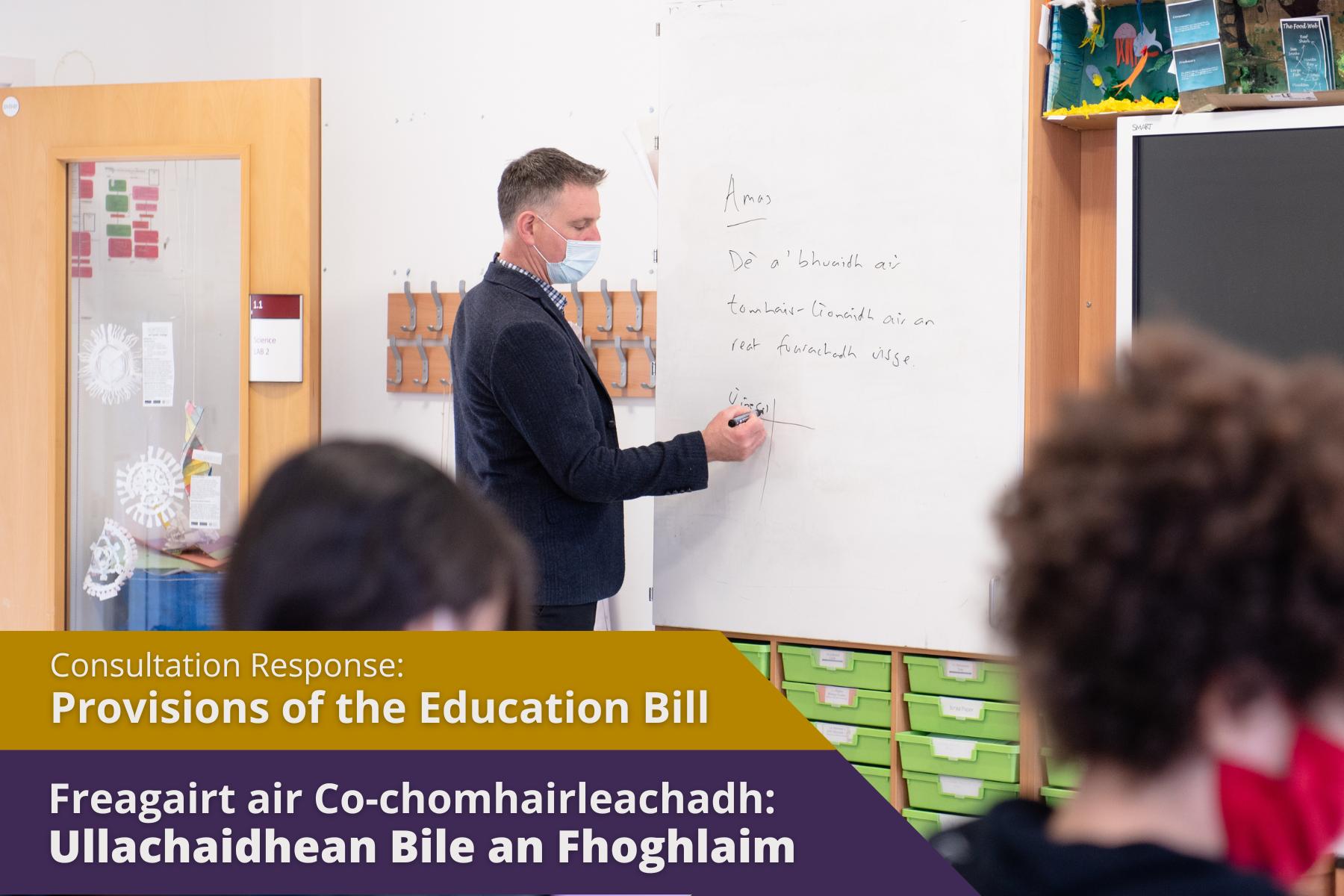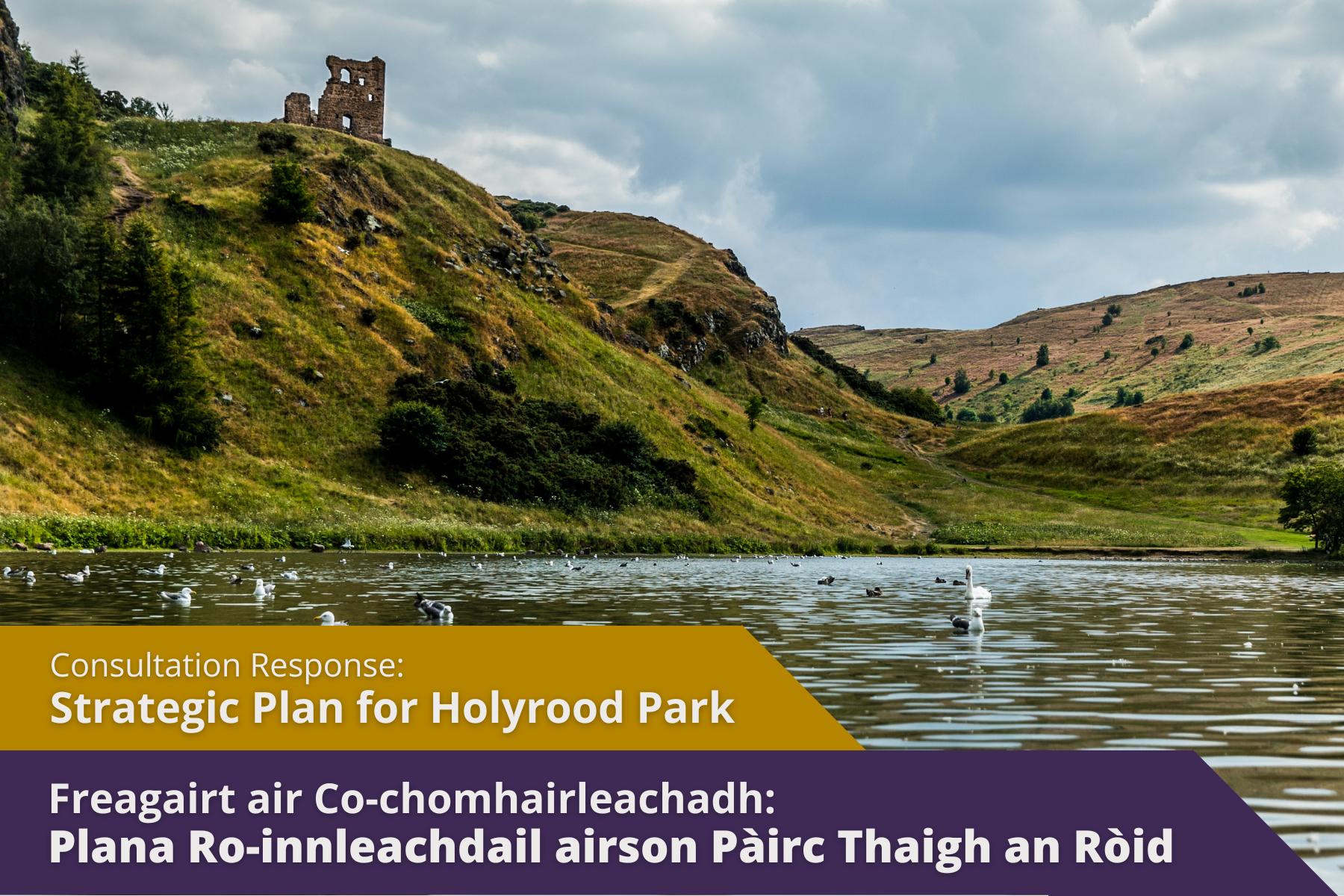Bòrd na Gàidhlig has submitted a response to Transport Scotland’s consultation, Clyde & Hebrides Ferry Services Contract. Amongst the points raised, we said:
Modern, sustainable, reliable ferry services with sufficient capacity and affordable fares are of utmost importance in sustaining the island communities of Gaelic speakers, and thus in sustaining and growing the Gaelic language.
The full response can be accessed here.

